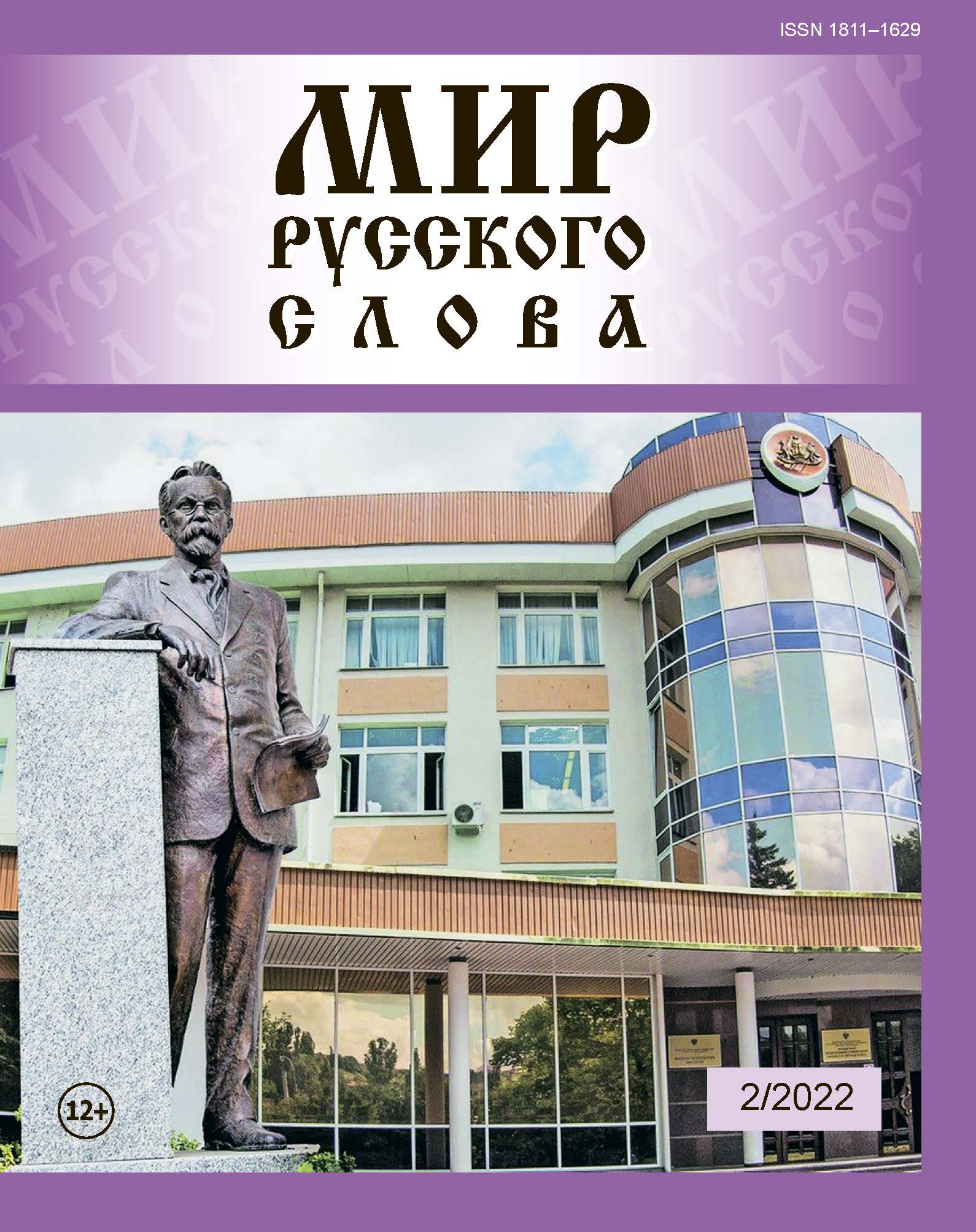Home as the center of the Arseny Tarkovsky’s poetic world
DOI:
https://doi.org/10.24412/1811-1629-2022-2-62-70Abstract
The article explores the role of “home” notion and image in the poetic world of Arseny Tarkovsky. The conception of the house is the key one to the poet's worldview and his map of the world. All the basic poetic positions are deeply connected with the idea of dwelling place as the most inspirational and guarding, revealing initial connections of the lyrical subject with this world. Th e world recreated by the poetic imagination of Arseny Tarkovsky is a lonely and dangerous place, so the notion of home becomes a special value. The need to find strong foothold and safety provokes search for asylum and pursuit for some kind of person’s cozy fortress. In the poetic world of A. Tarkovsky, the home is presented in different incarnations. The function of the dwelling is performed by various buildings, a hut, a nest. In a certain context, the role of the house is assumed by a heated freight car, a hotel room, or a hospital ward. But the crucial role for the poet plays the home of his childhood, which is the place with which all the best remembrances are connected. Along with quest for cover from all the world’s dangers, there is an opposite pursuit, based on wish to understand this world, no matter how ruthless and cold it looks to a lonely and lost man, the wish to make this world “your native home.” So the lyrical subject is haunted by two wishes: to restore and keep lost world of love and happiness in the past and, when reaching the essence of the universe, just fi nd the origins of harmony in the world present and real. The image of home becomes spiritual core unifying different layers of the poetic universe to make peace with this world.
Keywords:
lyrical subject, image of the home, Arseny Tarkovsky, poetic world, philosophy of home and homelessness
Downloads
Downloads
Published
How to Cite
Issue
Section
License
Articles of "The World of Russian Word" are open access distributed under the terms of the License Agreement with Saint Petersburg State University, which permits to the authors unrestricted distribution and self-archiving free of charge.




